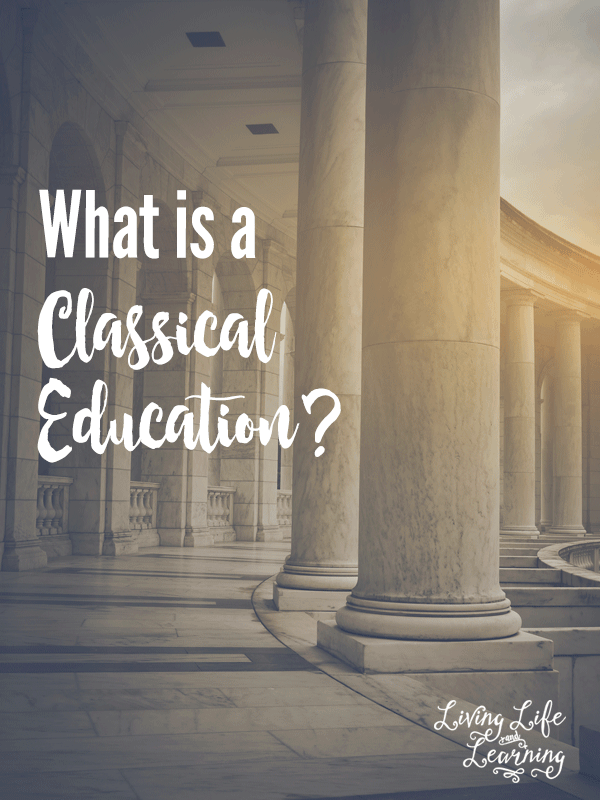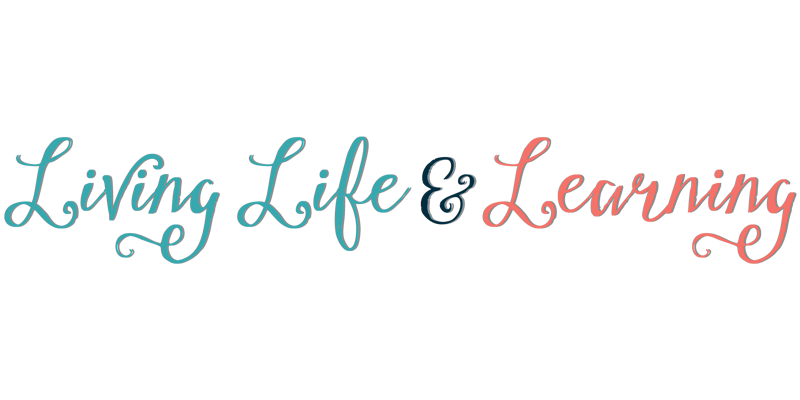What is a Classical education?
Are you homeschooling? Are you wondering what it means to classically educate your child?
A classical education focuses on returning to proven educational methods used in the past particularly focusing on the art and culture of Western civilization. It emphasizes languages, philosophy, art, and literature.
The philosophy is based on the Trivium which refers to the 3 stages of a child’s learning abilities – grammar, logic, and rhetoric.
 Grammar stage – the basics must first be learned through rote memorization, vocabulary and rules are emphasized. At this stage, children are absorbing information.
Logic stage – students begin to reason and make connections between the information that they’ve memorized or learned. They also begin to ask questions and may be more argumentative.
Rhetoric stage – at this stage the focus is on effective communication and expressing what they’ve learned in an articulate manner.
It may sound overwhelmingly rigorous in the early stages but children at that age are able to memorize facts very well.
Classical languages are studied whether it is Latin or Greek, as well as modern languages.
The focus is on the written word, first learning the rules of grammar and memorizing new vocabulary before you are able to put it into practice by writing eloquent essays in high school. There is a gradual progression of skills that need to be mastered before they can move onto the next level.
The classical education model is very history driven. In the The Well-Trained Mind: A Guide to Classical Education at Home (Third Edition)
Grammar stage – the basics must first be learned through rote memorization, vocabulary and rules are emphasized. At this stage, children are absorbing information.
Logic stage – students begin to reason and make connections between the information that they’ve memorized or learned. They also begin to ask questions and may be more argumentative.
Rhetoric stage – at this stage the focus is on effective communication and expressing what they’ve learned in an articulate manner.
It may sound overwhelmingly rigorous in the early stages but children at that age are able to memorize facts very well.
Classical languages are studied whether it is Latin or Greek, as well as modern languages.
The focus is on the written word, first learning the rules of grammar and memorizing new vocabulary before you are able to put it into practice by writing eloquent essays in high school. There is a gradual progression of skills that need to be mastered before they can move onto the next level.
The classical education model is very history driven. In the The Well-Trained Mind: A Guide to Classical Education at Home (Third Edition) , Bauer writes about the neo-classical education model and how to implement it. There is a four year history cycle that rotates three times in the child’s education, each time delving in deeper.
Other favorite classical education books:
, Bauer writes about the neo-classical education model and how to implement it. There is a four year history cycle that rotates three times in the child’s education, each time delving in deeper.
Other favorite classical education books:

 Grammar stage – the basics must first be learned through rote memorization, vocabulary and rules are emphasized. At this stage, children are absorbing information.
Logic stage – students begin to reason and make connections between the information that they’ve memorized or learned. They also begin to ask questions and may be more argumentative.
Rhetoric stage – at this stage the focus is on effective communication and expressing what they’ve learned in an articulate manner.
It may sound overwhelmingly rigorous in the early stages but children at that age are able to memorize facts very well.
Classical languages are studied whether it is Latin or Greek, as well as modern languages.
The focus is on the written word, first learning the rules of grammar and memorizing new vocabulary before you are able to put it into practice by writing eloquent essays in high school. There is a gradual progression of skills that need to be mastered before they can move onto the next level.
The classical education model is very history driven. In the The Well-Trained Mind: A Guide to Classical Education at Home (Third Edition)
Grammar stage – the basics must first be learned through rote memorization, vocabulary and rules are emphasized. At this stage, children are absorbing information.
Logic stage – students begin to reason and make connections between the information that they’ve memorized or learned. They also begin to ask questions and may be more argumentative.
Rhetoric stage – at this stage the focus is on effective communication and expressing what they’ve learned in an articulate manner.
It may sound overwhelmingly rigorous in the early stages but children at that age are able to memorize facts very well.
Classical languages are studied whether it is Latin or Greek, as well as modern languages.
The focus is on the written word, first learning the rules of grammar and memorizing new vocabulary before you are able to put it into practice by writing eloquent essays in high school. There is a gradual progression of skills that need to be mastered before they can move onto the next level.
The classical education model is very history driven. In the The Well-Trained Mind: A Guide to Classical Education at Home (Third Edition)- Teaching the Trivium: Christian Homeschooling in a Classical Style
- The Core: Teaching Your Child the Foundations of Classical Education



Good information was shared, thanks for this.